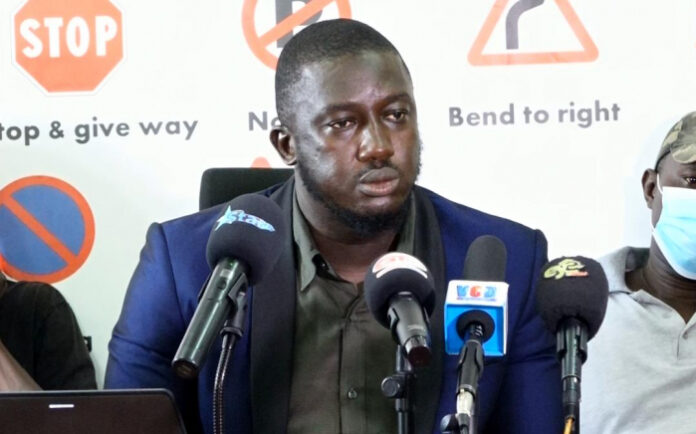By: Alieu Jallow
A two-day tension that erupted between the Senegalese Transport Union and The Gambia, starting Wednesday night, left multiple trucks stranded along the Kerr Ayub border with Senegal. The tension was triggered by the newly initiated Gambia Revenue Authority E-tracking system that imposed a D1600 tax levied on each truck crossing the Gambian borders.
Since the inauguration of the Senegambia Bridge, a large number of trucks, especially Senegalese, transport their goods from Senegal to The Gambia or the southern Senegalese region of Cassamance, thus helping ease movement and minimize long queues of trucks at the Banjul-Barra ferry crossing points. It is reported that due to the lack of a proper tracking system, Senegalese trucks were transporting goods to the south without any customs levy.
In a telephone interview, Omar Ceesay, President of the Gambia Transport Union, told The Fatu Network that the Senegalese drivers started protesting against the GRA tracking system as they transported goods from the northern to the southern side of their country. The tracking system aimed to monitor those goods to ensure they did not end up in Gambian markets. Amidst this, GRA imposed a tax of D1600 for using the borders. Mr. Ceesay mentioned that his counterparts called him decrying the levied duties, with Ceesay narrating how Senegalese authorities mistreated his colleagues.
“We Gambians are facing similar challenges and paying 10 times what they are paying because their police, gendarmerie, and customs officers are harassing our people, collecting money from us unlawfully. So we see it should be a win-win situation. Also, we, the union, support the E-tracking system because we know its importance, so we agreed with them that when they go back, they will stand down on their protest,” he outlined.
Mr. Ceesay asserted that following their conversation to end the unrest, the Senegalese Transport Union failed to honor their agreement and went ahead with the protest by parking all Gambian vehicles either entering or leaving the country, which prompted a reaction from the Transport Union. He underscored the significance of the E-tracking system in boosting The Gambia’s economy and helping to address tax leakages. This tension sparked widespread attention from the head of state, who held a brief telephone call to discuss ways forward in resolving the matter between the two states.
Mr. Ceesay vowed that as long as Senegalese brutality continues, they will resolve matters with tit-for-tat methods.
“We believe in eye for an eye, tit for tat, foot for foot, if they fail to understand. If they respect us, we respect them. If they stop us, we stop them. If they allow us, we allow them too, period,” he emphasized.
The GTU President alleged that the Senegalese authorities brutalized his people and spent a minimum of D10,000 on their security personnel. He called on the two heads of state to fast-track the bilateral agreements to smoothen the transport system, foster unity, and enhance trade and socioeconomic growth.




